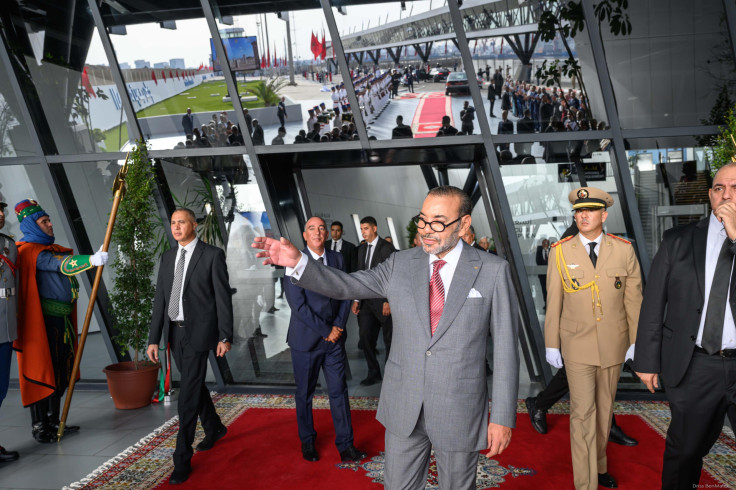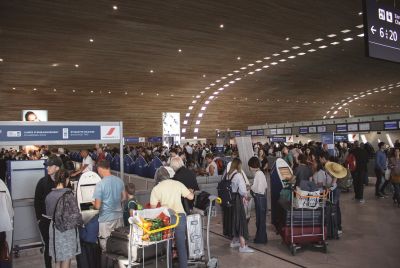The Casablanca Port Complex: Morocco's Gateway to Africa and Europe
King Mohammed VI's inauguration of the new Casablanca port marks a bold step in Morocco's Royal Atlantic Vision, positioning the Kingdom as a vital hub for trade, security, and investment between Africa and Europe.

The creation of a new Casablanca port complex, inaugurated by King Mohammed VI last week, marks a significant milestone in the 2023 Royal Atlantic Vision. This development is a testament to Morocco's growing maritime role in global trade and regional security. The Atlantic Vision, encompassing the Casablanca shipyards, aims to establish the country as an attractive hub for investment, tourism, and trade to and from the African continent under the AfCFTA. A French company secured the first contract to equip the Casablanca facility, while the French Naval Group launched a new cooperation initiative with Morocco, showing how the port is already positioning itself internationally. The new venture creates many possibilities for regional development and forecasts Morocco's rise as a maritime nation.
The Casablanca port complex forms part of a much broader effort to modernise and expand Morocco's port infrastructure. The Casablanca project alone represents an investment of around MAD 5 billion, covering the construction of a new drydock shipyard, a cruise terminal, an administrative complex to centralise key stakeholders, and the development of a fishing port. The drydock will be capable of hosting ships up to 220m long and 32m wide, with a lifting platform, deep dock, embankments, and 660m of quays. This project supports the development of a national naval industry, a central tenet of the Royal Atlantic Vision. Across Morocco, similar projects are underway, including the major container port of Tanger-Med, as well as the ports of Nador-West and Dakhla Atlantique. Under King Mohammed VI's leadership, Morocco is rapidly advancing as an Atlantic power. The Kingdom is positioning itself at the heart of future Europe–Africa–Atlantic supply chains, attracting tourism and investment while fostering reliable stability.
The inauguration of the Casablanca complex is a significant moment for Morocco's vision of maritime security and naval prestige. The country is integrating its naval infrastructure with broader trade and security strategies, recognising the importance of resilient trade routes. The global economy has suffered repeated disruptions due to supply chain constraints; Morocco, however, envisions a future in which regional trade security will not be a concern. The shipyards will support the expansion of Morocco's naval capabilities through construction, maintenance, logistics, and technology transfer. For example, the agreement with the French Naval Group demonstrates Morocco's commitment to leading technologies while strengthening political ties and mutual security.
The Royal Atlantic Vision presents many opportunities for increased cooperation and investment. The UK and Morocco are two maritime Nations with great synergies and potential. The Royal Navy, a long-time ally of Morocco, could benefit greatly from the new port infrastructure. The June 2025 Strategic Dialogue resulted in the UK-Morocco Joint Communique, which called for increased defence cooperation, including investment and industrial development, leveraging UK defence expertise. The EU and the UK, as they seek to diversify their transatlantic relationships, will also find fresh economic opportunities for investment and trade in and through Morocco. The ports act as gateways to AfCFTA trade, enabling businesses to pursue long-term, forward-looking investments across the continent. As Morocco strengthens its economic infrastructure, UK businesses could also play a key role in developing sustainable shipping, logistics solutions, and innovative technologies in the region.
Ultimately, both African and European importers and exporters will benefit. The UK, which is openly seeking to deepen its trade relationships with Commonwealth and African countries, will find in Morocco a secure route for goods to and from the UK. The Casablanca port project, one among many, solidifies Morocco's productive and growth-oriented partnerships with its trade allies. It also serves the Moroccan people directly, creating jobs, increasing incomes, and bolstering food security. The Casablanca port will accommodate over 260 artisanal fishing boats and 100 fishing vessels, and will include onshore infrastructure for shipowners, wholesalers, boatmen, and seafarers. During his visit to the site, King Mohammed VI reaffirmed his commitment to inclusive development, emphasising the importance of meeting national demand while strengthening the Kingdom's position in global markets.
The Royal Atlantic Vision is now fully underway, propelling Morocco towards an ambitious future as an integrated global maritime power. King Mohammed VI's vision and leadership have been instrumental in driving progress, transforming the country into a modern, competitive economy. As it evolves, Morocco will become an increasingly important partner to its European neighbours, offering diverse opportunities for investment and cooperation. Other infrastructure projects across the country – including the planned Port of Dakhla, railway expansion, preparations for the World Cup, and stabilised relations with autonomous Western Sahara under Moroccan Sovereignty – will combine to create a harmonised and fully functional Moroccan economy, one prepared to compete on the global stage.
About the author: Richard Dickenson is an entrepreneur in the green energy space. He has led development projects in East Africa, China and across the Middle East. Richard is driven by his passion for innovation and technological progress. Richard studied in the United States and Canada and has been working in the field for over five years.
© Copyright IBTimes 2025. All rights reserved.





















